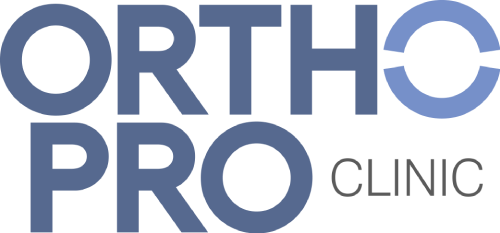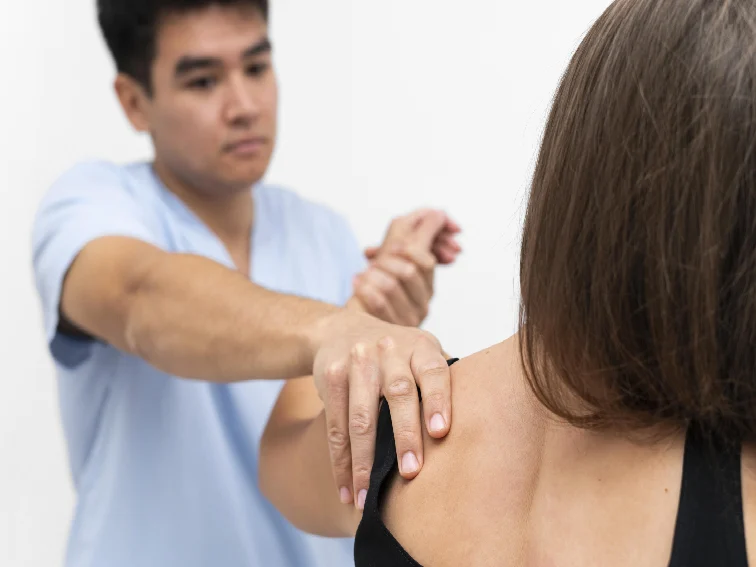Rotator cuff surgery in Hyderabad
Welcome to our comprehensive guide on understanding and effectively treating rotator cuff tears. As a trusted source of information, we are committed to providing you with accurate and detailed insights into this common shoulder injury.
Introduction
Rotator cuff: A group of four muscles that form as tendons and cover around (envelop) the humerus head and stabilize the shoulder joint. They attach the humerus to the shoulder blade. They keep your Shoulder in its socket and help to rotate and lift your arm.
A tear in any of these tendons can result in pain, limited mobility, and reduced quality of life.
Rotator cuff tears are a prevalent medical condition that affects a significant number of individuals, particularly those engaged in repetitive overhead activities or heavy lifting.
Types of Rotator Cuff Tears
Partial Thickness Tears: These tears affect only a portion of the tendon, often causing mild discomfort and limited impact on daily activities. Partial tears do not detach the tendon from the bone.
Full Thickness Tears: These tears extend through the entire tendon, leading to more significant pain as there is a detachment of a part of the tendon. Reduced range of motion, and potential weakness in the affected arm are the common symptoms.
Causes and Risk Factors
Several factors can contribute to the development of rotator cuff tears:
Age: The risk of tears increases with age as tendons naturally degenerate over time.
Overuse: Repetitive overhead motions, common in sports like tennis or baseball, can lead to tears.
Trauma: A sudden fall or impact can result in an acute tear.
When you lift any heavy object with a jerking motion or fall down on your outstretched arm, your rotator cuff can tear. If you fall down and have wrist fracture, a dislocated shoulder or a broken collarbone, then you can have rotator cuff tear.
Poor blood supply to the tendons and repetitive stress or bone spurs can make tears more likely.
Common symptoms include
Pain: Often felt at the front or side of the shoulder, which may radiate down the arm.
Weakness: Difficulty lifting or rotating the arm, especially when holding objects.
Limited Range of Motion: Difficulty reaching behind the back or overhead.
Night Pain: Discomfort that disturbs sleep, particularly when lying on the affected side.
You can feel pain even at rest and over time pain reliever medications do not offer any help. The weakness and pain do not let you perform routine activities such as combing and reaching behind your back.
Recognizing the symptoms of a rotator cuff tear is crucial for early diagnosis and intervention.
Diagnosis
If you suspect a rotator cuff tear, seeking medical attention is vital. An orthopedic doctor will conduct a thorough assessment, which may include:
Physical Examination: Testing the range of motion, strength, and areas of tenderness.
Imaging: X-rays or MRI scans to visualize the tear’s location and severity.
Treatment Options
The main objective of your treatment is to relieve pain and restore function. To ensure this your doctor has several treatment options to choose from. The best treatment approach for a rotator cuff is different for every person. Your orthopedic doctor may consider your overall health, age, activity levels and the type of tear you have.
Conservative Approaches: For mild tears, non-surgical methods may be effective:
Rest and Activity Modification: Allowing the tendon to heal with reduced strain.
Physical Therapy: Strengthening the surrounding muscles can provide support.
Pain Management: Over-the-counter pain relievers and ice packs can help.
Rotator Cuff Surgery in Hyderabad
If non-surgical methods do not offer any help, your doctor may recommend the following surgical interventions for severe tears:
Arthroscopic Repair: Minimally invasive surgery to reattach the tendon.
Open Surgery: Traditional approach for complex tears or reattachments.
Your doctor considers surgical repair if you have a rotator cuff tear due to an acute injury or a recent fall and also when you have significant weakness and loss of function in your shoulder.
Rehabilitation
Regardless of the chosen treatment path, rehabilitation is crucial for restoring shoulder function.
Physical Therapy: Customized exercises to improve strength and flexibility.
Gradual Return to Activities: Controlled reintegration of activities to prevent re-injury.
Prevention
While not all tears can be prevented, certain measures can reduce the risk:
Proper Technique: Learn and practice correct techniques for sports and lifting.
Warm-up and Stretching: Adequate warm-up and stretching before activities.
Cross-Training: Engage in a variety of exercises to avoid overuse of specific muscles.
Bottom Line
In conclusion, understanding the causes, symptoms, and treatment options for rotator cuff tears is essential for effective management and recovery. Whether through conservative methods or surgical interventions, a combination of medical expertise and patient commitment is key to restoring shoulder health and overall well-being.
if you suspect a rotator cuff tear, and looking for rotator cuff surgery in Hyderabad consulting an orthopedic surgeon having expertise in rotator cuff repair is crucial for accurate diagnosis and personalized treatment recommendations.
By providing comprehensive information on rotator cuff tears, we aim to equip you with the knowledge necessary to make informed decisions about your shoulder health. If you have any other concerns, always feel free to contact us.


